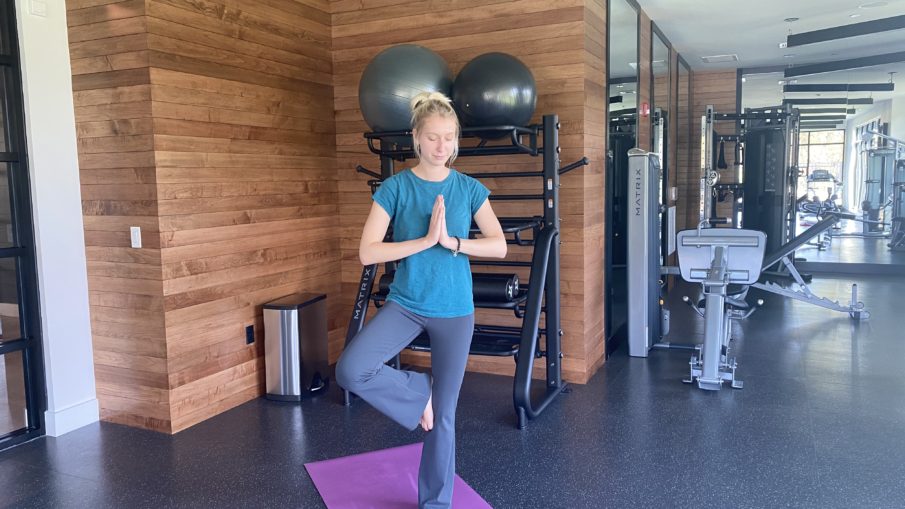Are you a student who is struggling to balance life’s challenges? Mindfulness may be the solution. According to the Mayo Clinic (www.mayoclinic.org), mindfulness is a form of meditation in which you focus on being intensely aware of what you are sensing and feeling in the moment, without interpretation or judgement.
Courtney Scott, an adjunct professor, has been teaching stress management courses at Frederick Community College since 2018. She is also a certified yoga and Koru Mindfulness, a meditation app, instructor. Before this, Scott had spent many of her years as an accountant, dealing primarily with tax work, leaving her all too familiar with the world of stress.
The course she teaches is Health 160, Stress Management. It is a 3-credit class that satisfies a general education elective. The course discusses the concepts of stress and how it directly affects our bodies. Scott describes, “I think it is a very important class for students to take because the content is made up of essential life skills.”
Scott explains, “Stress is a component of daily life, being human, having relationships, and we as individuals cannot avoid it.” Moreover, stress presents itself to everyone in different ways, times, and levels. Therefore, having a variety of coping mechanisms to approach stress management is what her class provides.
Developing a wellness strategy takes time. By immersing yourself into a practice you are more likely to reap its benefits. In simpler terms “what you put into it, is what you get out of it”, says Scott.
A great place to begin is by noticing what you are doing with your down time when you are not engaged. Scott states, “A lot of the time we default to behavior that is mindless.” The majority of this mindless behavior includes scrolling on our phones through social media or eating. Having this awareness will consciously shift your energy to a better utilization of time.
Scott recommends setting a timer, reminding us to step away from our studies for a moment or two. Taking a quick walk, playing with a pet, or engaging in conversation with someone actually increases productivity and maintains focus, as compared to constantly staring at a computer screen.
Another easy way to reduce stress is diaphragmatic breathing which is the most basic relaxation technique. Scott explains, “Learning how to breathe from the diaphragm and take slow deep breaths not only sharpens your focus, but creates a physiological change in the body.”
This change triggers a relaxation response, causing a mental break and a physical shift.
To better handle stress, Scott suggests that students get enough sleep while also sticking to a consistent sleep pattern. She also advocates basic self-care like making sure you are drinking enough water throughout the day and limiting the amounts of negative media. These good habits have a long-term impact on the future of our health and mental well-being.
Scott urges students to keep an eye out for upcoming events in the spring of 2021 from the Office of Student Engagement that bring awareness to mental health.
Scott says, “Although there are a variety of coping mechanisms, not every technique resonates with each person.” The key is finding what works best for you.

